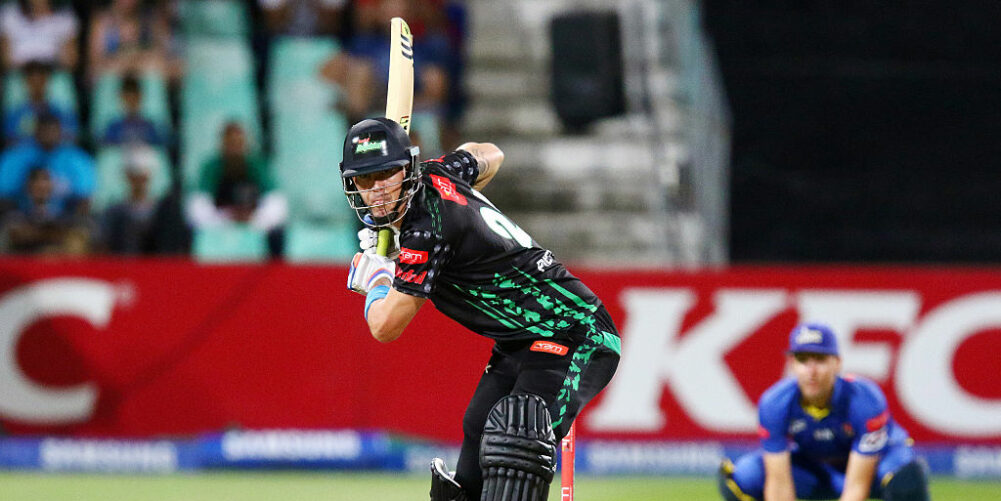By Neil Manthorp
The collapse of South Africa’s much-trumpeted T20 Global League has left a trail of broken promises and shattered dreams, a pile of debt and scorched credibility. And that is the good news. Worse may be to come whether or not the league is actually launched in 12 months’ time, as planned.
Start with the players. There were 180 of them confirmed at the draft six weeks ago – 18 per franchise with a pre-set salary cap of $900,000 (£685,000) not including the international ‘marquee players’ which included Jason Roy and Kevin Pietersen at fees of between £150,000 and £185,000.
Brendon McCullum is known to have declined a substantial offer to play in the Bangladesh Premier League in order to play for the Jo’burg Giants in the Global League. Dwayne Bravo, Kieron Pollard and Chris Gayle were in a similar position. They are unlikely to agree to unpaid gardening leave for six weeks having dedicated the final years of their careers to making as much cash as possible.
But it is the South African players further down the pecking order who will suffer most. The value of the lowest contract, 18th place in the squad, was £7,500, as many rand as a young player would receive in a whole season and enough to put down a deposit on a small apartment. For the players further up the draft, those with contracts worth between £37,500 and £75,000, the extra income would have been life-changing.
Needless to say, some players had already committed themselves financially on the basis of their new franchise contract.
“A year is a long time in cricket,” said an exhausted SA Cricketers Association chief executive, Tony Irish, who is also the executive chairman of the International Players Association (FICA).
“Who knows which players will be around next year and which contracts will still be applicable or relevant. It is a disaster and it will take a very long time to sort out,” Irish said.
He has been unable to answer his phone because it hasn’t stopped ringing. If every player was to be paid out in full, the bill would be around £6.85m. Add in the coaches and other administrative staff who were employed and the number goes well past £7.5m.
The eight stadiums at which the teams were to be based were also promised generous rental payments and there are outstanding contracts with suppliers, deposits paid for travel and accommodation, the installation of new floodlights in Bloemfontein and Port Elizabeth… nobody has even compiled the full list yet.
Those seeking compensation will be joining a very long queue.
Other English players signed up included Chris Jordan, Adil Rashid, Tom Curran and Sam Billings. James Vince and Steve Finn were also signed before their Ashes selection while Alex Hales and Cricket South Africa (CSA) will no longer have to grapple with the ticklish question of his participation for the Cape Town Knight Riders.
The League was the vision of former CSA chief executive, Haroon Lorgat, who left the organisation by “mutual consent” (he was sacked) three weeks ago. He appears to have built the financial model for the tournament in partnership with Venu Nair whose company, Ortus Sports, was only registered in April this year. He held the sole contract to sell the broadcast rights and title sponsorships.

The CSA board of directors claim they were kept in the dark by Lorgat and Nair for six months while details were being finalised. Lorgat claims he always had the board’s approval. Both may be correct.
“For a long time we asked for details and didn’t get them, but we didn’t force the issue because Haroon has done good work for CSA for many years. Even when some of us thought we smelled a rat we didn’t act soon enough,” one board member told The Cricket Paper.
Lorgat and Nair played a high-stakes game of bluff and chicken with local broadcaster Supersport which owns all the rights to domestic and international cricket in SA. Originally, Supersport claimed automatic ownership of the Global League rights under their existing umbrella agreement.
Lorgat dismissed the claim with contempt. Lorgat and Nair wanted around £22.5m, Supersport offered a maximum of £4.5m. Nair and Lorgat walked out of the first meeting, Supersport walked out of two subsequent ones.
Television production and stadium hosting costs would have all but wiped out CSA’s financial reserves if they had attempted to go it alone this year. They even flew to London last week in a desperate, last-ditch attempt to interest Sky having drawn a blank with Sony and Star in India. In the end they were faced with three choices: go ahead and risk bankruptcy; postpone and either pay or pray for leniency when the claims start arriving; or cancel it completely.
One upshot is that the desire of many players to move north has been rekindled. CSA had two goals for the league – the first was to create an income stream which would reduce or even eliminate their reliance on income from incoming bilateral series, principally India and Australia. Secondly, to retain the best players and stop them seeking playing opportunities or even careers in England. With just one more season to go until Brexit, the collapse of the Global League could lead to a stampede for Kolpak deals.
Lorgat’s aims for the Global League were over-ambitious in the extreme and, unlike every other domestic T20 tournament, including the IPL which took three years to break even, he appears to have underestimated the importance of proving the product to be robust and good value.
He wanted to skip straight to the part where everybody is rich. If only life worked like that.















